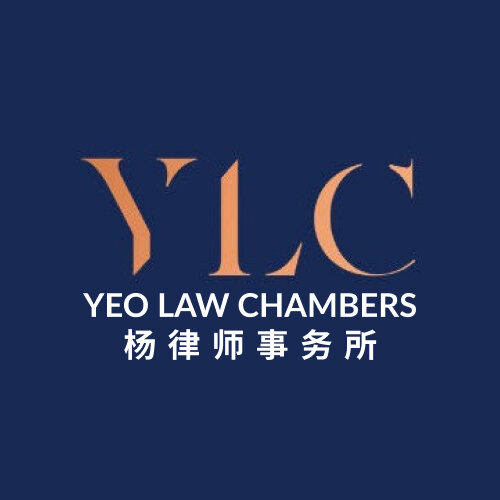Best Public-Private Partnerships (PPP) Lawyers in Johor Bahru
Share your needs with us, get contacted by law firms.
Free. Takes 2 min.
List of the best lawyers in Johor Bahru, Malaysia
About Public-Private Partnerships (PPP) Law in Johor Bahru, Malaysia
Public-Private Partnerships (PPP) are collaborative projects between government entities and private sector companies to finance, build, and operate infrastructure or provide public services. In Johor Bahru, Malaysia, PPPs are increasingly used for infrastructure development such as roads, hospitals, schools, and utility services. The goal is to leverage private sector expertise, innovation, and financing to achieve public sector objectives efficiently and sustainably.
Although PPPs are contractual arrangements, they are governed by a robust legal and regulatory framework set at the federal level and adapted by state and local authorities, including the Johor Bahru City Council and the Johor State Government. These partnerships are complex and involve a unique set of legal, financial, and operational risks which both parties must carefully navigate.
Why You May Need a Lawyer
Engaging in a PPP project in Johor Bahru, whether as a private investor, a contractor, an adviser, or a government agency, often requires specialised legal guidance. Some common situations where legal assistance is beneficial include:
- Reviewing, drafting, or negotiating PPP contracts and agreements.
- Understanding your rights and obligations as a participant in a PPP project.
- Navigating procurement and tendering processes in line with federal or state regulations.
- Resolving disputes between partners or with third parties arising from the PPP arrangement.
- Advising on financing mechanisms and risk allocation suitable for your role in the project.
- Ensuring compliance with environmental, land use, construction, and other sector-specific laws.
- Assisting with regulatory approvals and permits from local authorities.
- Addressing issues of intellectual property, confidentiality, and data protection involving the PPP.
Legal support ensures that your interests are protected, and the project proceeds smoothly through its various stages from conception to operation and maintenance.
Local Laws Overview
PPPs in Johor Bahru operate under a combination of federal and state laws, guidelines, and policies. Some of the key legal elements relevant to PPPs include:
- Public-Private Partnership Guidelines: Issued by the Unit Kerjasama Awam Swasta (UKAS) under the Prime Minister's Department, these guidelines set the framework for planning, structuring, and implementing PPP projects in Malaysia.
- Procurement Laws: Most public procurement is governed by the Financial Procedure Act 1957 and the Government Contract Act 1949, as well as state-specific enactments and circulars in Johor, laying out the procedures for awarding PPP contracts.
- Concession Agreements: Many PPP projects take the form of concession agreements, which detail the rights to design, build, operate, and transfer (DBOT) assets.
- Land Law: The National Land Code 1965 and local land office regulations are key for PPPs involving land acquisition or use.
- Sector-specific Regulations: Depending on the type of infrastructure (energy, water, waste, transport), different regulatory authorities and laws may apply, such as the Energy Commission Act or Environmental Quality Act.
- Dispute Resolution Mechanisms: PPP agreements often require disputes to be resolved through arbitration, mediation, or the Malaysian courts.
It is essential to understand how local rules and the unique circumstances in Johor Bahru impact your PPP project, as deviations can lead to delays or legal challenges.
Frequently Asked Questions
What is considered a Public-Private Partnership (PPP) in Johor Bahru?
A PPP is a long-term collaborative arrangement between government agencies and private sector companies, primarily for infrastructure development and public services delivery in Johor Bahru, with risks and rewards shared under contract.
Who regulates PPP projects in Johor Bahru?
Regulation is shared between the Unit Kerjasama Awam Swasta (UKAS) at the federal level, and local or state agencies such as the Johor State Economic Planning Unit (UPEN Johor) and local councils for project-specific approvals.
How is a PPP project different from a normal government contract?
Unlike traditional public procurement, PPP projects involve private sector participation in project design, financing, construction, operation, and maintenance, over a long concession period, with payment structures tied to performance and project outcomes.
What are the typical types of PPP models used in Johor Bahru?
Common PPP models include build-operate-transfer (BOT), build-own-operate (BOO), lease-develop-operate (LDO), and joint ventures, each defining how responsibilities and risks are shared.
Can foreign companies participate in PPP projects in Johor Bahru?
Yes, foreign companies may participate, subject to compliance with Malaysian laws, including local equity participation requirements and sector-specific regulations.
What kind of risks should be considered in a PPP project?
Risks include financial, legal, construction, operational, political, and force majeure risks. Careful risk allocation in contracts is critical for successful PPP projects.
How are disputes in PPP projects typically resolved?
Most PPP agreements provide for dispute resolution through arbitration, either domestically or internationally, and sometimes through mediation or the Malaysian courts.
What documentation is required to start a PPP project?
Key documents include a feasibility study, proposal, draft contract (concession agreement), financial model, and evidence of approvals or permits from relevant authorities.
Are there any incentives for private sector participation in PPP projects?
The Malaysian government sometimes offers tax incentives, guarantees, or grants for PPP projects, especially those aligned with national or state development priorities.
How long does the PPP procurement process usually take in Johor Bahru?
The process can take from several months to years, depending on the size, complexity, sector, and negotiation with government agencies.
Additional Resources
If you are seeking more information or official guidance on PPPs in Johor Bahru, the following resources may be helpful:
- Unit Kerjasama Awam Swasta (UKAS), Prime Minister's Department
- Johor State Economic Planning Unit (UPEN Johor)
- Johor Bahru City Council (Majlis Bandaraya Johor Bahru)
- Malaysian Investment Development Authority (MIDA)
- Malaysia Productivity Corporation (MPC)
- Relevant local chambers of commerce and law associations
These agencies can provide policy documents, application procedures, and guidance on regulatory compliance for PPP projects.
Next Steps
If you are interested in or currently involved in a PPP project in Johor Bahru and require legal assistance, consider taking these steps:
- Identify and engage a lawyer or legal firm with expertise in PPP law and local Johor regulations.
- Gather all relevant project documents, including contracts, correspondence, feasibility studies, and regulatory submissions.
- Consult with government authorities to clarify procedural requirements and expectations.
- Request a preliminary legal assessment to identify risks, obligations, and compliance issues unique to your PPP arrangement.
- If needed, seek advice on contract negotiation, dispute resolution, and regulatory approval processes.
Legal advice is invaluable in ensuring your project proceeds efficiently and complies with all relevant laws, helping to safeguard your investment and interests over the full life-cycle of your PPP in Johor Bahru.
Lawzana helps you find the best lawyers and law firms in Johor Bahru through a curated and pre-screened list of qualified legal professionals. Our platform offers rankings and detailed profiles of attorneys and law firms, allowing you to compare based on practice areas, including Public-Private Partnerships (PPP), experience, and client feedback.
Each profile includes a description of the firm's areas of practice, client reviews, team members and partners, year of establishment, spoken languages, office locations, contact information, social media presence, and any published articles or resources. Most firms on our platform speak English and are experienced in both local and international legal matters.
Get a quote from top-rated law firms in Johor Bahru, Malaysia — quickly, securely, and without unnecessary hassle.
Disclaimer:
The information provided on this page is for general informational purposes only and does not constitute legal advice. While we strive to ensure the accuracy and relevance of the content, legal information may change over time, and interpretations of the law can vary. You should always consult with a qualified legal professional for advice specific to your situation.
We disclaim all liability for actions taken or not taken based on the content of this page. If you believe any information is incorrect or outdated, please contact us, and we will review and update it where appropriate.












